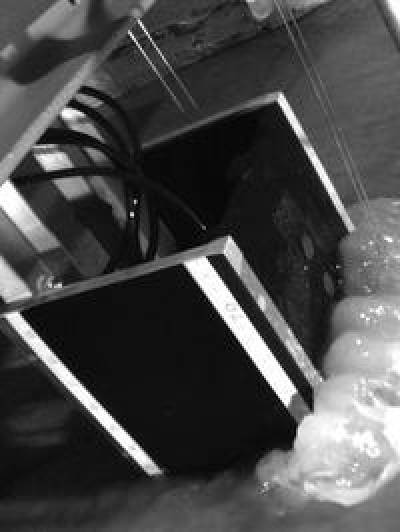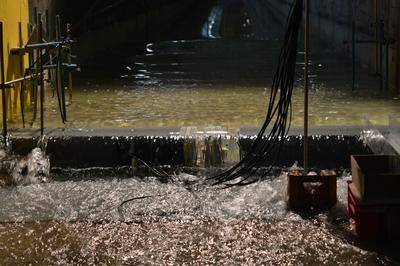Urbanwaves is a large EC grant funded research project focusing on investigating and elucidating the offshore behaviour of tsunami from source to coastline, and the resulting interaction of tsunami with coastlines, coastal defences, structures, sediment scouring and debris pick-up. Tsunami, which present a significant natural hazard to coastal communities and infrastructure, remain poorly understood particularly in the near and onshore environment. This project involves researchers with expertise in physical and numerical hydraulic and fluids modelling. Large scale physical experiments involve the use of instrumented models of coastal regions and structures in two long flume facilities. Very long period waves are generated using a novel and unique pneumatic tsunami wave generator. The project is in partnership with HR Wallingford, U.K., who have designed and commissioned the generator on site. There are three extensive experimental programs within the project: one in 2015 (completed), and two in 2016. The project also focuses on the numerical modelling of tsunami in order to further understand the physical processes and ultimately extrapolate to various prototypes.
The outcomes are focused towards a better and more systematic understanding of the various problems, including improved structural loading and runup predictions through a significant academic output via publications and seminars/conferences. Overall it is hoped that the research will improve understanding of the tsunami phenomenon, its mitigation and ultimately help protect lives and property.
Funding: ERC Starting Grant: 336084
Partners: HR Wallingford, University of Bristol
EpiCentre staff included: Tiziana Rossetto (project lead), Ian Eames, David McGovern (physical modelling of tsunami runup, coastal defences and scouring), Andrew Foster (physical & numerical modelling of structures), Christian Klettner (numerical modelling), Crescenzo Petrone (multiple structures), Tristan Robinson (debris impact).


 Close
Close





